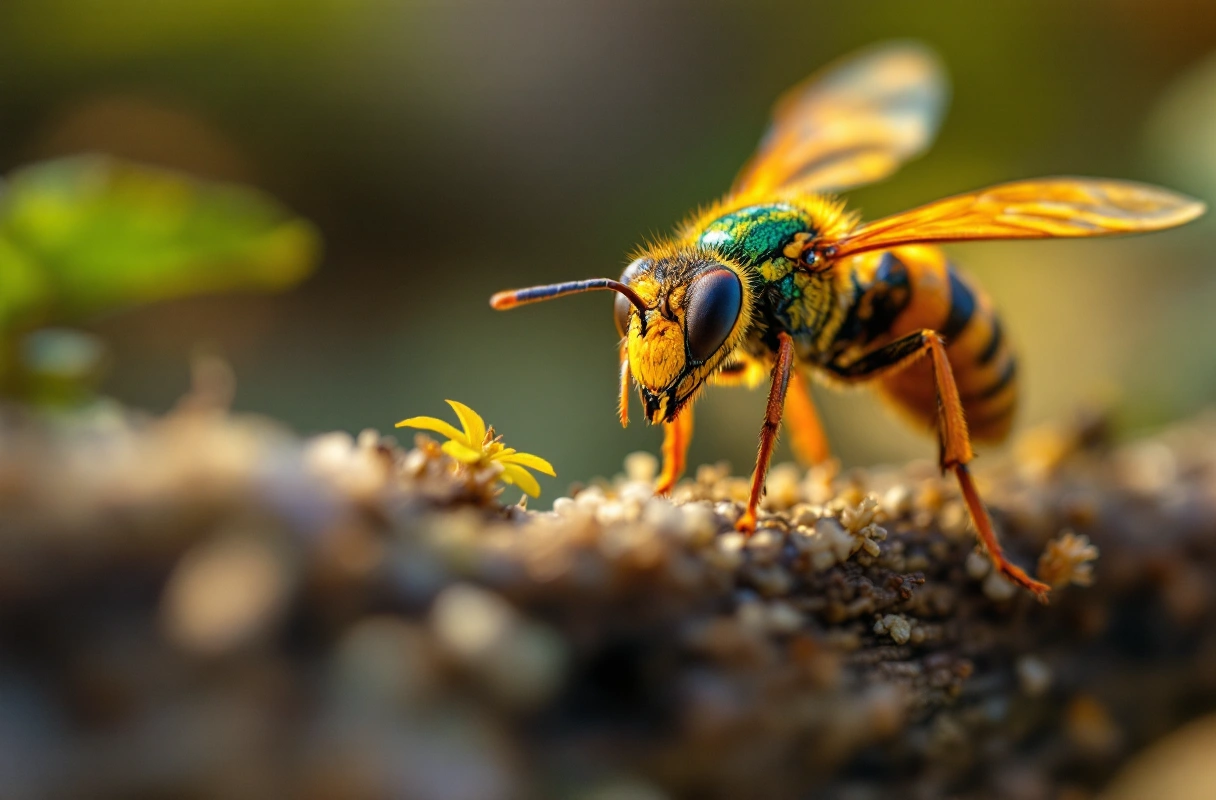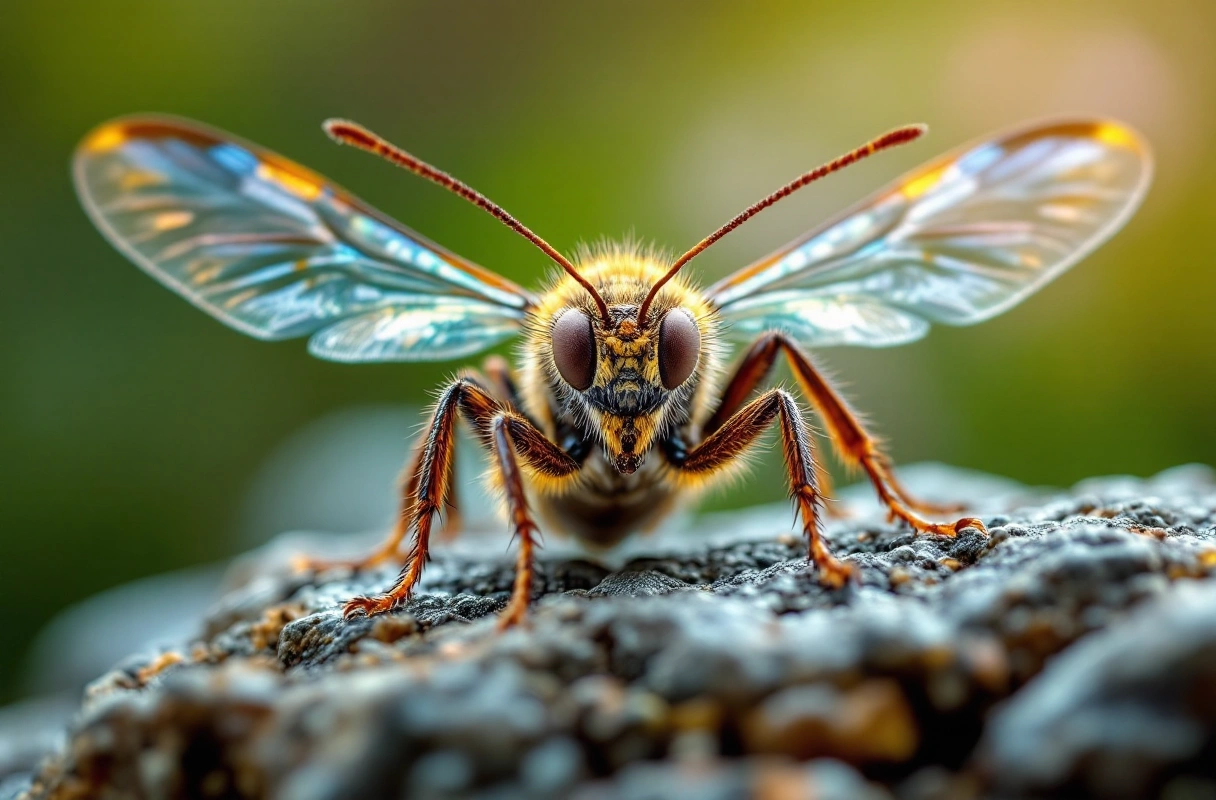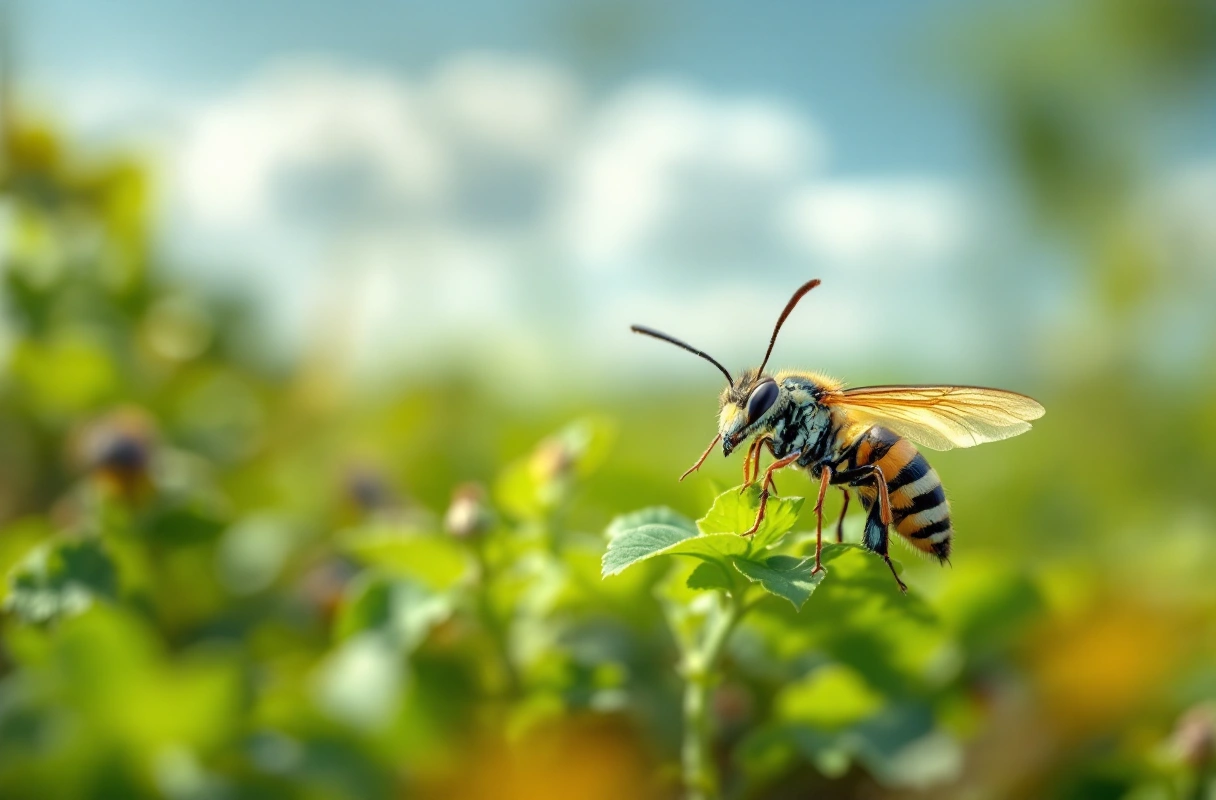
In the complex world of agriculture, insects play a pivotal role, often serving as unsung heroes in the ecosystem. While many people associate insects with pests and crop destruction, a significant number of insect species are beneficial, providing crucial services that enhance agricultural productivity. These beneficial insects contribute to pest control, pollination, and nutrient cycling, making them invaluable allies for farmers and gardeners alike. In this article, we will explore the benefits of beneficial insect species, delve into the fascinating world of insects, and identify some of the most remarkable insect species that contribute to agriculture.

Beneficial insects are those that provide advantages in agricultural settings. They can be broadly categorized into three groups: pollinators, predators, and decomposers. Each group serves a unique function that contributes to the overall health of crops and the environment.
Pollinators, such as bees, butterflies, and certain beetles, are essential for the reproduction of many flowering plants, including fruits and vegetables. They transfer pollen from one flower to another, facilitating fertilization and fruit development. It is estimated that approximately one-third of the food we consume relies on animal pollination, highlighting the critical role of these insects in our food supply.
Predatory insects, such as ladybugs, lacewings, and certain wasps, help control pest populations by feeding on harmful insects. For example, ladybugs are known for their voracious appetite for aphids, which can cause significant damage to crops. By maintaining a balance in the ecosystem, these predators reduce the need for chemical pesticides, promoting sustainable farming practices.
Decomposer insects, including certain beetles and ants, play a vital role in breaking down organic matter, returning nutrients to the soil. This process is essential for soil health and fertility, ensuring that crops have access to the nutrients they need to thrive.

Understanding the diversity of insect species is crucial for identifying those that can benefit agricultural practices. Here, we highlight ten remarkable insect species that have a significant impact on agriculture.
The honeybee is perhaps the most well-known pollinator. Its role in pollinating crops such as almonds, apples, and blueberries is invaluable. Honeybees can travel up to five miles from their hive, ensuring the pollination of a wide variety of plants.
Ladybugs are natural pest controllers, primarily feeding on aphids and other soft-bodied insects. Their presence in gardens and farms can significantly reduce the need for chemical insecticides.
Lacewing larvae are voracious predators of aphids, caterpillars, and thrips. Farmers often release lacewing eggs in their fields to help control pest populations naturally.
While primarily known for their beautiful migration, monarch butterflies are essential pollinators for many wildflowers and some crops. Their role in maintaining biodiversity is crucial for healthy ecosystems.
Though not an insect, earthworms are vital decomposers that improve soil structure and fertility. Their burrowing activity aerates the soil, enhancing water retention and nutrient availability for crops.
Similar to its cousin, the lacewing, the green lacewing is beneficial for its predation on aphids and other pests. Farmers often use green lacewing larvae as a biological control method.
Dragonflies are effective predators of mosquitoes and other flying insects. Their presence can help control pest populations in agricultural settings, making them valuable allies.
Many beetles, such as the scarab beetle, contribute to pollination. These insects are often overlooked but play a vital role in the reproductive processes of various plants.
Ants are not only decomposers but also protectors of crops. Some species tend aphids for their honeydew, while others actively hunt pests. Their complex social structures and behaviors contribute to a healthy ecosystem.
Parasitic wasps lay their eggs inside or on other insects, such as caterpillars and aphids. This method of pest control is highly effective and reduces the need for chemical interventions.

Integrating beneficial insects into agricultural practices presents numerous advantages, not only for farmers but also for the environment. Understanding these benefits can help promote sustainable farming and biodiversity.
One of the most significant advantages of beneficial insects is their contribution to increased crop yields. By improving pollination rates and controlling pest populations, these insects help ensure that plants can produce more fruits and seeds. For instance, research indicates that fields with high populations of pollinators can yield up to fifty percent more produce than those without them.
The presence of beneficial insects can drastically reduce the need for chemical pesticides. This not only lowers costs for farmers but also minimizes environmental impact. By employing natural pest control methods, farmers can promote healthier ecosystems and reduce the risk of pesticide resistance developing in pest populations.
Beneficial insects that contribute to decomposition play a crucial role in maintaining soil health. By breaking down organic matter, they enhance nutrient cycling and improve soil structure. Healthy soil is fundamental for sustainable agriculture, as it supports robust plant growth and reduces erosion.
Utilizing beneficial insects in agriculture promotes biodiversity, which is essential for ecosystem resilience. A diverse array of species helps ensure that ecosystems can adapt to changes and recover from disturbances. By fostering an environment where beneficial insects thrive, farmers contribute to the overall health of the planet.
Despite the numerous benefits of beneficial insects, several misconceptions persist about their role in agriculture. Addressing these misconceptions can help promote a more informed approach to insect management.
A common belief is that all insects are pests that cause harm to crops. While some insects can be destructive, many are essential for maintaining ecological balance. Understanding the differences between harmful and beneficial species is crucial for effective pest management.
Many farmers believe that chemical pesticides are the only solution for pest control. However, integrating beneficial insects can often provide a more sustainable and effective method of managing pest populations. By adopting integrated pest management (IPM) practices, farmers can rely on a combination of natural and chemical controls.
Some farmers may think that managing beneficial insects is complicated and time-consuming. In reality, encouraging their presence often requires simple changes in farming practices, such as planting diverse crops and creating habitats that attract these insects.
To maximize the benefits of beneficial insects in agriculture, farmers can implement several strategies to attract and retain these valuable allies.
Diversity in crops can attract a wider variety of beneficial insects. Incorporating flowering plants, legumes, and native species into crop rotations can create a more inviting environment for these insects.
Providing habitats, such as hedgerows, wildflower strips, and insect hotels, can encourage beneficial insects to settle in agricultural areas. These habitats offer shelter and food resources, promoting insect populations.
Reducing the use of chemical pesticides can help protect beneficial insect populations. When pesticides are necessary, selecting targeted products and applying them during times when beneficial insects are less active can mitigate negative impacts.
Crop rotation not only helps manage soil health but also disrupts pest life cycles. By rotating crops, farmers can reduce pest pressures while providing a varied environment for beneficial insects.
Educating farmers and agricultural workers about the importance of beneficial insects can foster a culture of conservation. Training programs that emphasize integrated pest management and the benefits of biodiversity can lead to more sustainable practices.
Insects play a crucial role in agriculture, serving as beneficial allies that enhance crop yields, reduce chemical use, and improve soil health. The importance of insect species identification and understanding their roles cannot be overstated. By recognizing the value of beneficial insects, farmers can adopt practices that promote sustainable agriculture and protect our ecosystems.
At Banana Slug Club, we are dedicated to fostering a deeper understanding of the natural world, including the vital roles that insects play in our environment. We encourage nature enthusiasts, students, and curious minds to explore the fascinating world of insects through our resources and educational programs.
Visit our website to learn more about how you can contribute to insect conservation and sustainable agriculture. Whether you are a student eager to learn or a nature enthusiast looking to deepen your knowledge, Banana Slug Club offers a wealth of information and support to help you engage with the wonders of nature. Together, we can cultivate a more sustainable future.
Get free resources, early access to new features and updates.
No spam. Just fun educational emails!